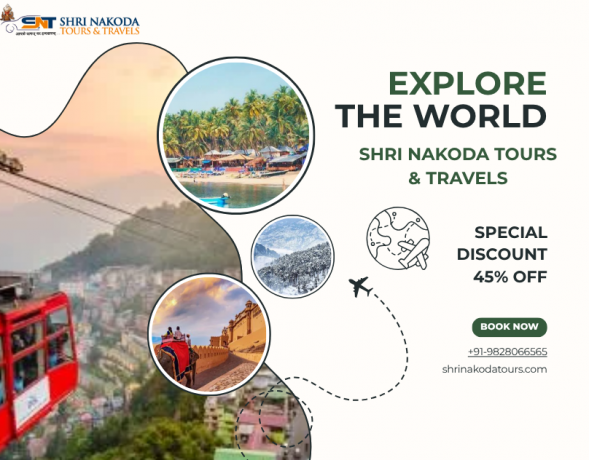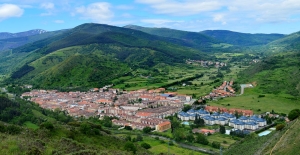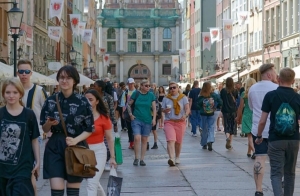The world of travel has transformed dramatically in the past decade. What was once about sightseeing and ticking destinations off a bucket list has evolved into a lifestyle, a philosophy, and for many, a way of work. The rise of digital nomads, the growing awareness around sustainable tourism, and the shift toward mindful, conscious exploration have redefined what it means to wander the world. People are no longer just tourists; they are explorers seeking purpose, connection, and responsibility in their journeys. As travelers pursue meaningful experiences over material luxuries, destinations are responding with a focus on authenticity and sustainability — something many Tour Operators in Udaipur and other cultural hubs have already begun to champion with remarkable success.
The Digital Nomad Revolution: Work Without Borders
Technology has blurred the lines between work and wanderlust. The digital nomad lifestyle — once a fringe concept — is now a global movement. Professionals armed with laptops, Wi-Fi, and a thirst for freedom are trading traditional offices for beaches, mountains, and historic towns. They're working from cafés in Lisbon, co-living spaces in Bali, and heritage homes in Jaipur, proving that productivity and adventure can coexist beautifully.
The appeal lies in autonomy. Digital nomads are not just escaping the 9-to-5 grind; they are embracing a new definition of success — one that values time, creativity, and experience over corporate titles. This freedom to work anywhere has reshaped the tourism industry itself. Hotels, homestays, and hostels are transforming into co-working havens, while governments in countries like Portugal, Indonesia, and Thailand are launching digital nomad visas to attract long-term visitors.
In India, cities such as Goa, Dharamshala, and Udaipur are becoming favorite hotspots for remote workers seeking both cultural richness and serenity. Cafés with stable Wi-Fi, creative communities, and scenic workspaces make these destinations ideal for the modern traveler. The message is clear: the world has become one vast, inspiring office.
Eco-Tourism: Traveling with a Conscience
As climate change and environmental degradation dominate global headlines, travelers are becoming more conscious of their impact. Eco-tourism — once a niche category — is now at the heart of responsible travel. It's not just about visiting natural areas but about ensuring that every step leaves a positive footprint.
From solar-powered resorts in the Himalayas to plastic-free beaches in Kerala, eco-conscious initiatives are transforming the tourism landscape. Travelers are now seeking experiences that protect ecosystems, uplift local communities, and celebrate biodiversity. They choose accommodations that conserve energy, support conservation efforts, and promote local employment.
In places like Sikkim, for instance, the state's commitment to organic farming and sustainable tourism has made it a global model. Meanwhile, desert camps in Rajasthan are incorporating rainwater harvesting, renewable energy, and zero-waste practices — showing that sustainability and comfort can coexist harmoniously.
Eco-tourism is more than a travel choice; it's a moral responsibility. It invites us to enjoy nature not as consumers but as caretakers, ensuring the planet's beauty endures for generations to come.
Conscious Exploration: The Soul of the New Traveler
Beyond eco-friendly practices and digital mobility lies another powerful shift — the rise of conscious exploration. Travelers today are no longer content with surface-level sightseeing; they crave immersion, education, and transformation. Conscious travelers seek to understand the culture, history, and heartbeat of every place they visit.
This movement celebrates slow travel — the art of staying longer, connecting deeper, and moving mindfully. It means sharing meals with local families, volunteering for community projects, or learning traditional crafts. It's about trading luxury for authenticity, and routine for self-discovery.
In cities like Udaipur, this form of travel finds a perfect home. The city's serene lakes, ancient architecture, and vibrant art scene invite reflection and renewal. Workshops on miniature painting, heritage walks through old markets, and conversations with local artisans turn a simple visit into an experience of awakening. Conscious exploration reminds us that travel is not about escape — it's about expansion.
Rediscovering Urban Wonders: The Rise of City-Based Experiences
While remote retreats and wilderness adventures dominate headlines, city exploration is quietly staging a comeback — but with a twist. Modern travelers are rediscovering urban adventures through local-led experiences, cultural immersions, and storytelling tours that uncover the hidden layers of bustling cities.
This shift has given rise to micro-tourism — exploring one neighborhood at a time. Walking tours, street food trails, and heritage experiences allow travelers to appreciate cities through the eyes of locals. Whether it's savoring authentic Rajasthani thalis in Udaipur's old town or exploring street art in Delhi's Lodhi Colony, these city tours transform ordinary visits into unforgettable cultural encounters. Best City Tours Await!
Cities are no longer mere stopovers — they've become living museums of human creativity and connection. Travelers are now drawn to their energy, diversity, and stories that bridge the past with the present.
The Blurring Lines Between Work, Travel, and Life
The digital era has made one truth undeniable — travel is no longer a pause from life; it is life. The boundaries between vacation, work, and personal growth are fading fast. People are taking “workations,” blending productivity with pleasure, and realizing that fulfillment doesn't have to wait until retirement.
This lifestyle redefines what home means. For many, home is where the Wi-Fi connects automatically — a co-working café, a beachfront apartment, or a cozy Airbnb overlooking a mountain valley. The idea of permanence has evolved into a sense of belonging that can exist anywhere.
Countries are adapting to this change with policies that attract long-term travelers. The Maldives now offers “work from paradise” programs, and Estonia's digital nomad visa is inspiring similar moves worldwide. Even in India, forward-thinking hospitality providers are designing packages for long stays, integrating wellness, work, and exploration into one seamless experience.
This new balance between work and wanderlust isn't just a trend — it's a blueprint for the future.
How Sustainability and Technology Are Merging
As travel evolves, technology is becoming its most powerful ally. Artificial intelligence, data-driven insights, and digital tools are helping make travel more efficient and sustainable. Eco-conscious apps track carbon footprints, while booking platforms now highlight green-certified accommodations.
For example, AI-based itinerary planners can now suggest travel routes that minimize emissions, while blockchain is being used to ensure fair-trade practices in local tourism economies. Even simple technologies like digital payments and contactless check-ins reduce waste and paper use.
Yet, technology's most meaningful contribution lies in connection — connecting travelers with local communities, authentic stories, and real-world experiences. Social media platforms, once criticized for promoting over-tourism, are now being used to highlight lesser-known destinations and sustainable travel choices. The digital age, when used responsibly, can amplify the message of conscious exploration across the globe.
Local Communities: The Heart of Authentic Travel
The most transformative experiences often come from the people we meet along the way. Local communities are the backbone of authentic travel, preserving traditions and offering insights that no guidebook can replicate.
In places like Rajasthan, local artisans and village cooperatives are reviving centuries-old crafts, from pottery and block printing to folk music and storytelling. Travelers who visit these communities don't just take souvenirs home — they take stories, friendships, and a deeper appreciation for human resilience.
Sustainable tourism ensures that local economies benefit directly. Instead of profits being siphoned off by global corporations, community-based initiatives empower locals, preserve heritage, and maintain cultural integrity. When travelers choose homestays over hotel chains, or buy directly from artisans, they become part of a larger cycle of preservation and progress.
True adventure isn't about seeing new places; it's about seeing familiar humanity in new ways.
The Role of Wellness and Mindful Living in Modern Travel
The new traveler is as interested in inner journeys as outer ones. Wellness tourism — encompassing yoga retreats, meditation escapes, and holistic healing experiences — has become a defining trend of the decade.
India, long recognized as the spiritual capital of the world, is at the forefront of this movement. The ashrams of Rishikesh, Ayurveda resorts of Kerala, and wellness retreats of the Himalayas offer transformative spaces where travelers can reset mind, body, and soul.
But wellness isn't confined to luxury. It can be as simple as practicing sunrise yoga on a beach, meditating by a mountain lake, or embracing digital detox weekends. The modern traveler seeks balance — to slow down, breathe deeply, and reconnect with what truly matters.
Mindful travel reminds us that the greatest destination is not a place, but a state of being.
The Future of Conscious Travel: Adapting to a Changing World
The pandemic reshaped how we perceive travel. It taught the world the value of stillness, empathy, and adaptability. As the industry rebounds, there's a collective realization that tourism must evolve — not just economically but ethically.
Travelers are now more discerning. They research before they book, choose destinations that prioritize sustainability, and support initiatives that protect local heritage. Airlines are investing in greener fuels, accommodations are going plastic-free, and digital tools are promoting responsible travel behavior.
The future of travel is collaborative. Governments, communities, and travelers must work hand-in-hand to ensure that exploration remains enriching, equitable, and environmentally sound. Conscious exploration isn't a trend; it's a transformation — one that aligns adventure with awareness.
The Journey Ahead: Traveling with Purpose
The new age of travel is not defined by how far we go, but by how deeply we connect. Whether you're a digital nomad working from a lakeside café, an eco-traveler exploring pristine forests, or a mindful explorer immersing yourself in local culture, your journey contributes to a global narrative of balance and belonging.
Adventure and awareness are no longer opposites — they are partners in progress. The traveler of tomorrow isn't just chasing destinations but embracing purpose, harmony, and respect.
As we move forward, may every trip remind us that the planet is both our playground and our home — one that deserves to be explored with care, curiosity, and compassion.
Conclusion
Heritage travel is a delicate balance of honoring the past while embracing modern travel comforts. By combining strategic planning, immersive experiences, and thoughtful engagement with local culture, travelers can create journeys that are both memorable and meaningful. Partnering with trusted Tour Operators in Udaipur ensures that your exploration is seamless, immersive, and tailored to your preferences.
Additionally, recognizing that Best City Tours Await! for those seeking guided adventures ensures that every corner of the city is experienced to its fullest. Whether wandering through ancient palaces, tranquil lakes, or lively local markets, the combination of history, culture, and modern convenience transforms travel into an art form.
Ultimately, the timeless trails of heritage cities like Udaipur offer an unparalleled opportunity to connect with history, embrace cultural richness, and craft experiences that resonate long after the journey ends. By traveling smartly, respectfully, and immersively, every explorer can turn their dreams into unforgettable adventures where heritage truly meets modern travel aspirations.






